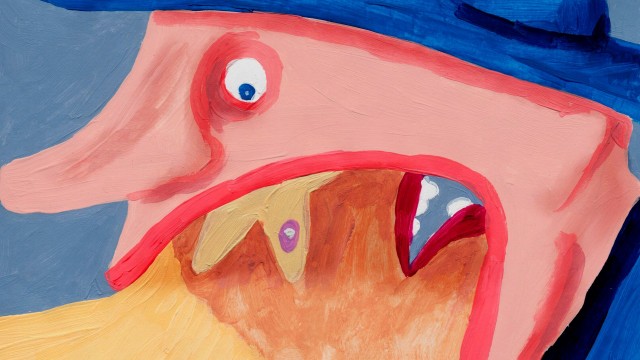Sweet Like Lemons is a sharp and visceral film that delves into the complexities of relationships and the struggle for closure after a breakup. One of the hardest truths to confront, as you might already know, is accepting that the other person is exactly that – an individual with their own agency and autonomy. The sooner we accept we have no control the happier and more mature we become. And it’s precisely at this emotional juncture where director, Jenna Jokela, hits you.
With its unconventional narrative structure, paired with traditional painted animation, the film creates a dreamlike atmosphere that perfectly captures the turbulent emotions of heartbreak. The protagonist’s journey is raw and relatable, as she navigates the painful process of falling in love, losing herself, and ultimately, finding the strength to move on.

“The film is animated on TV paint. I then print out all the frames, paint them by hand using acrylic paint. Finally I scan them back in and make the final edit.” – Jokela on her process.
Even if abstract films aren’t usually your style, the director’s unique approach to animation is sure to guide you through the feelings you navigate in a breakup. The technique involves traditional animation, with each frame meticulously hand-painted in acrylic, adding a tactile quality to the film. These aesthetic decisions result in a visually stunning and deeply affecting experience that not only draws the viewer into the protagonist’s emotional journey, but resonates perfectly with the feelings it seeks to evoke.
At its core, Sweet Like Lemons is a film about the importance of self-empowerment and letting go. As the director explains:
Jokela goes on to describes the title of her short as a reference to this duality, explaining that regaining your power feels both “freeing and sweet”, before adding that it is “also bitter (like lemons) to never get the accountability you longed for.” The director also sees Sweet Like Lemons as “a second part” to her graduation short Barbeque. While both films are intended as standalone pieces, this latest film feels like the closure of a previous chapter. Through its compelling storytelling and distinct animation style, Jokela offers a messy and honest reflection on the human experience, reminding us that true closure can only come from within.

 Mariana Rekka
Mariana Rekka